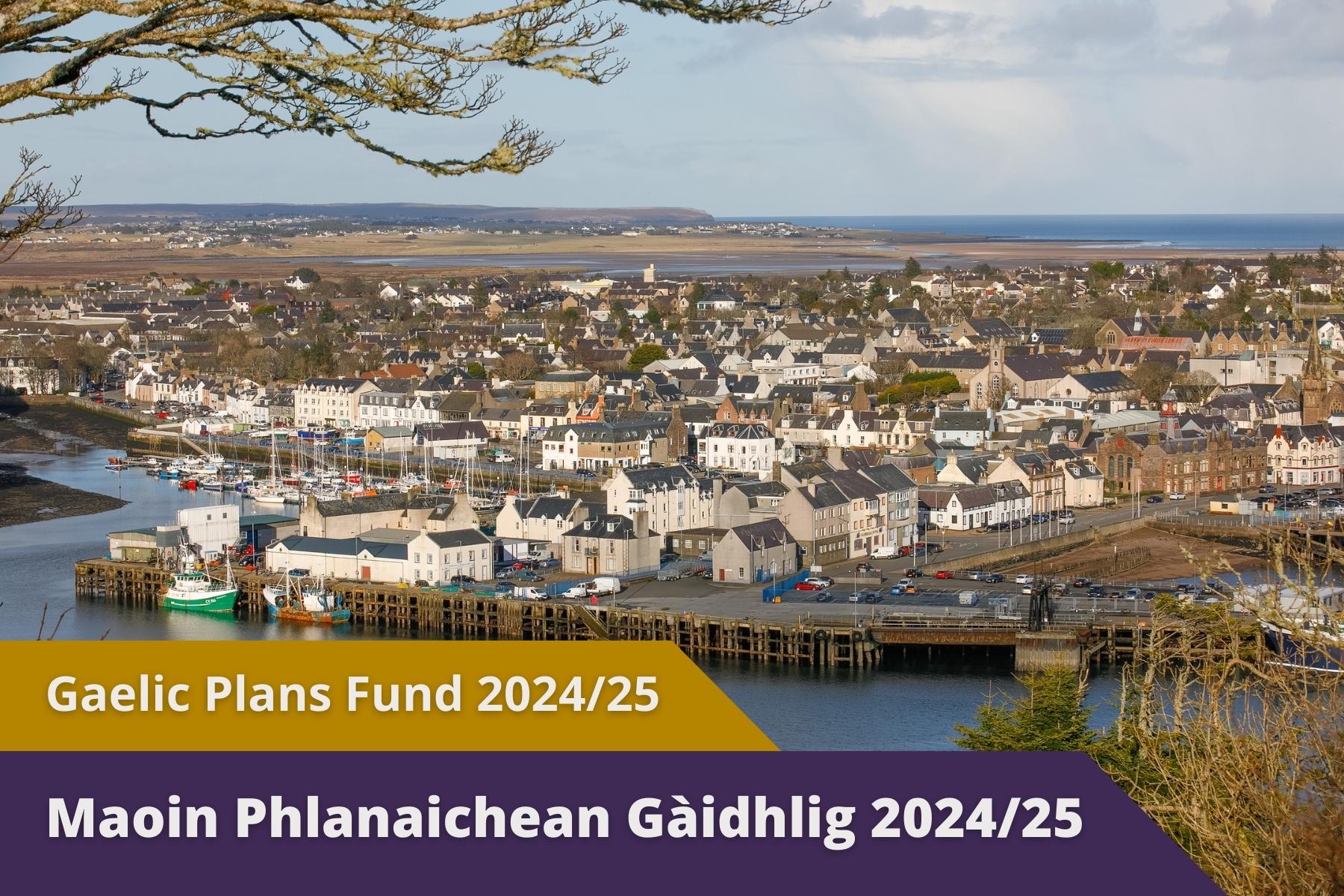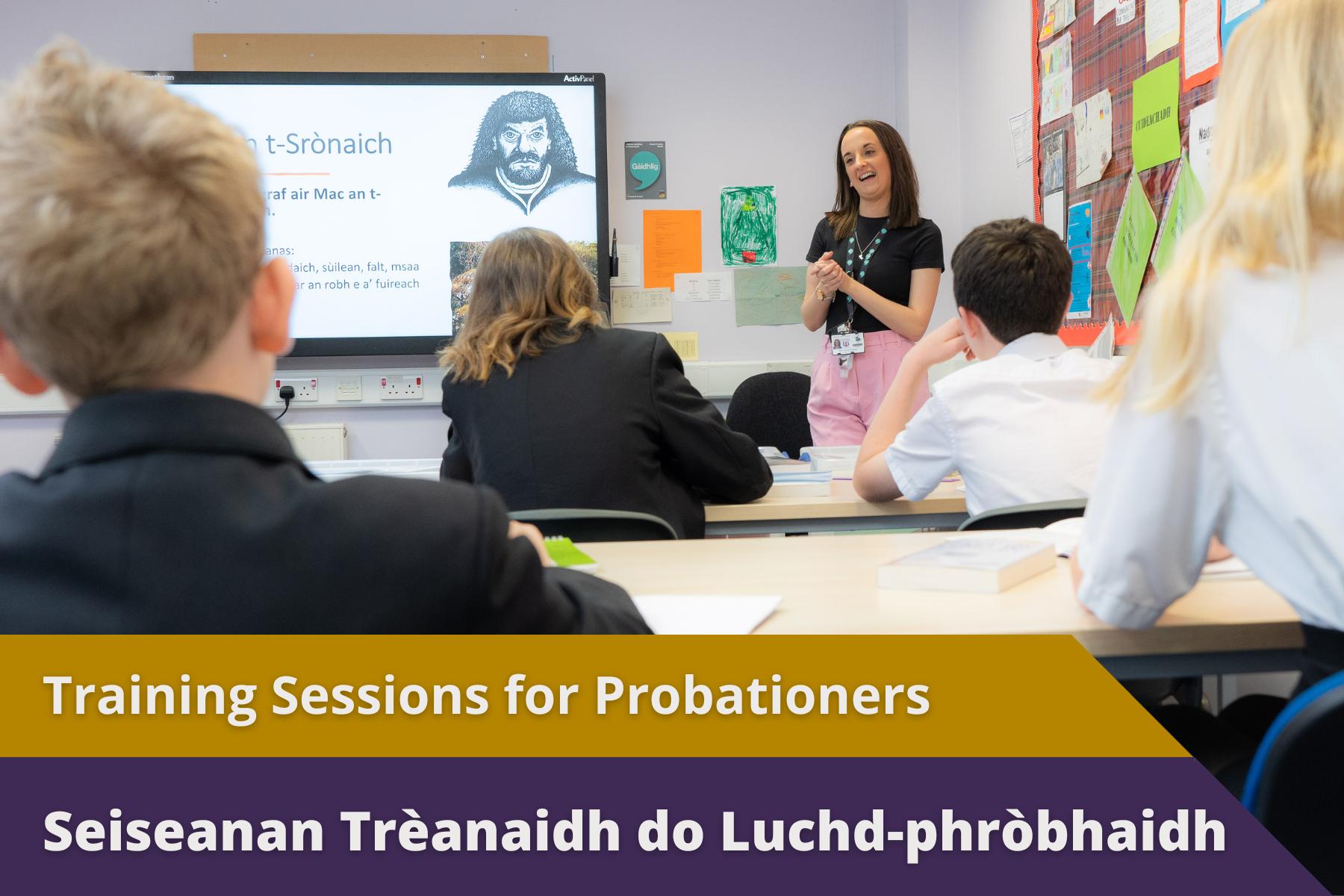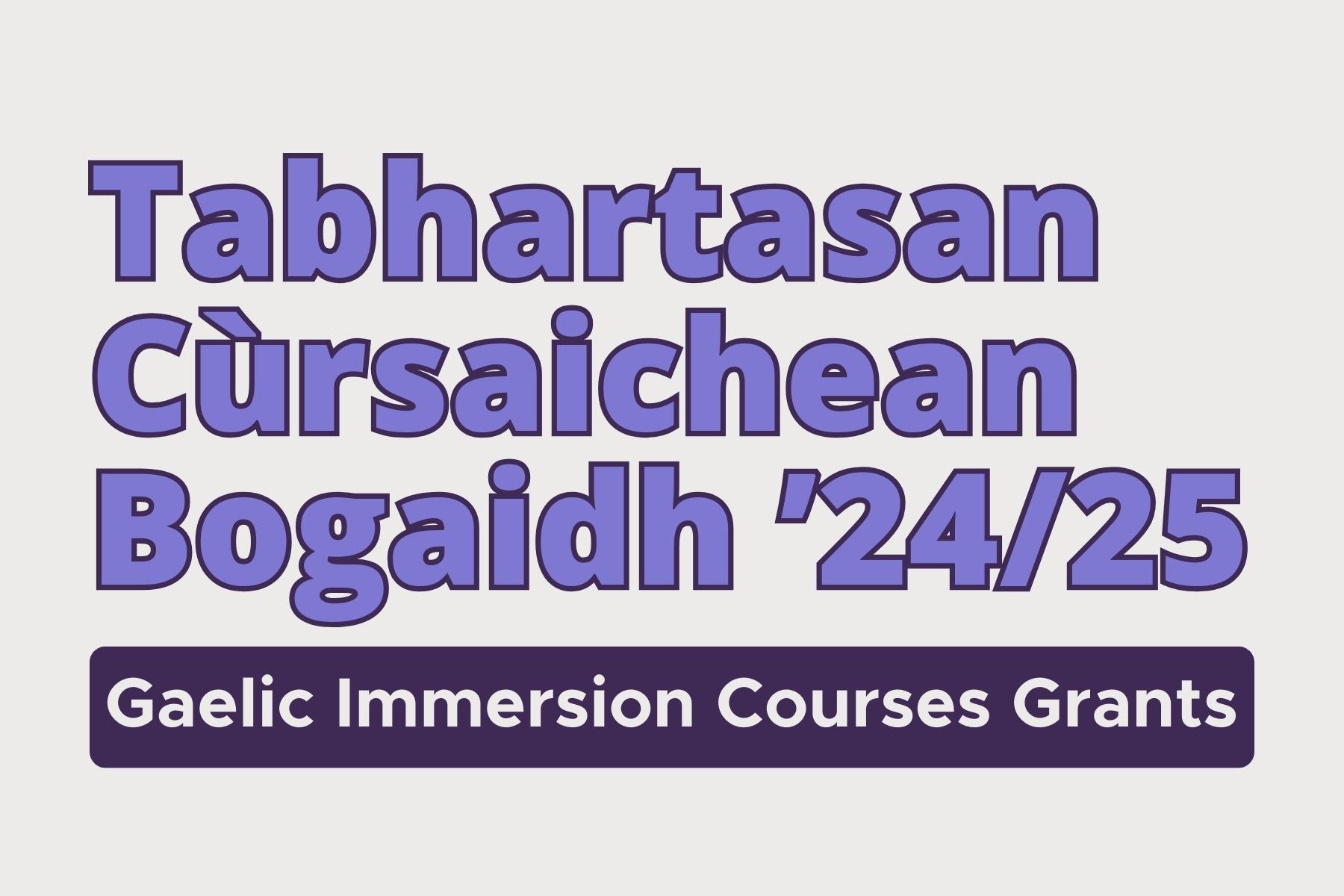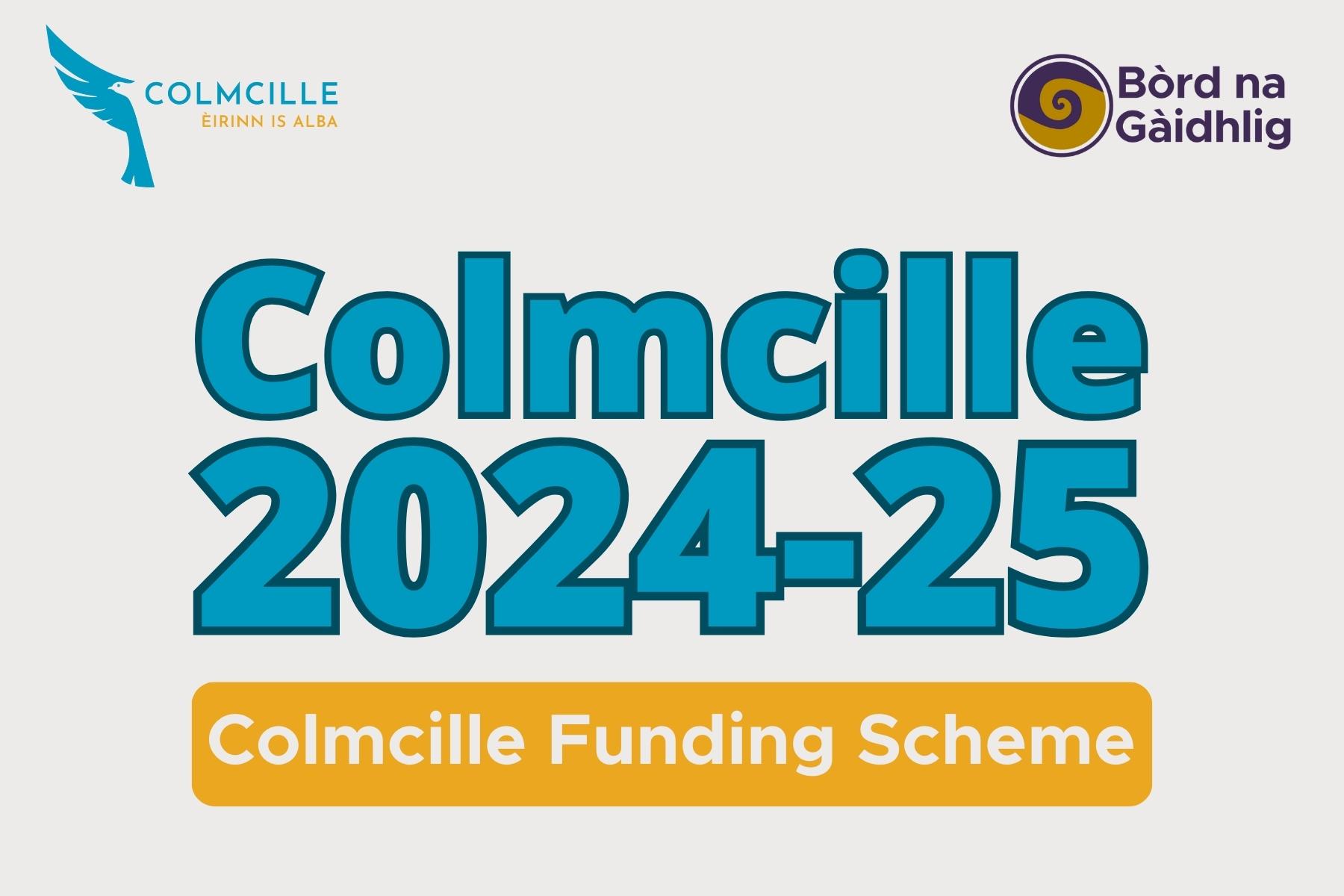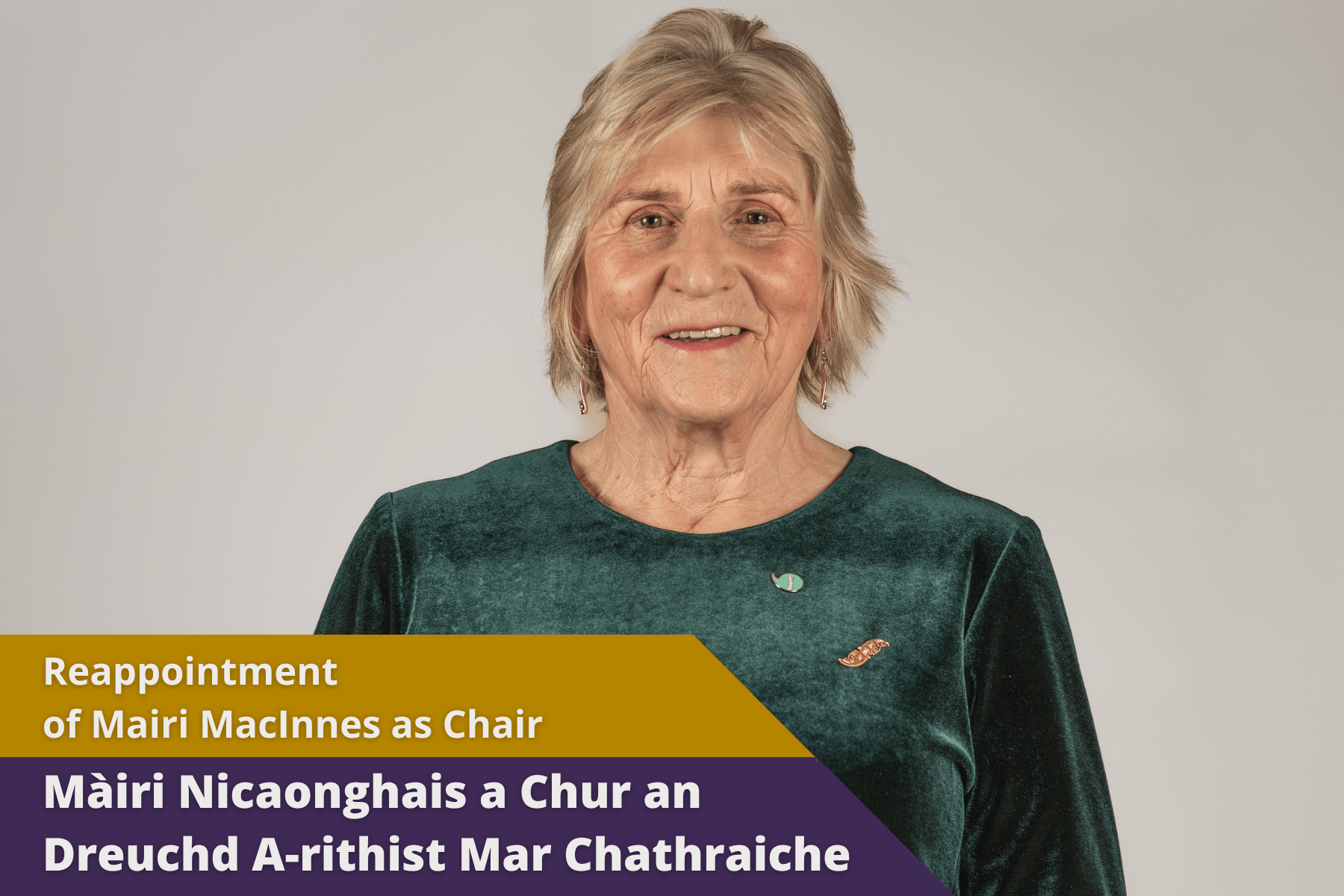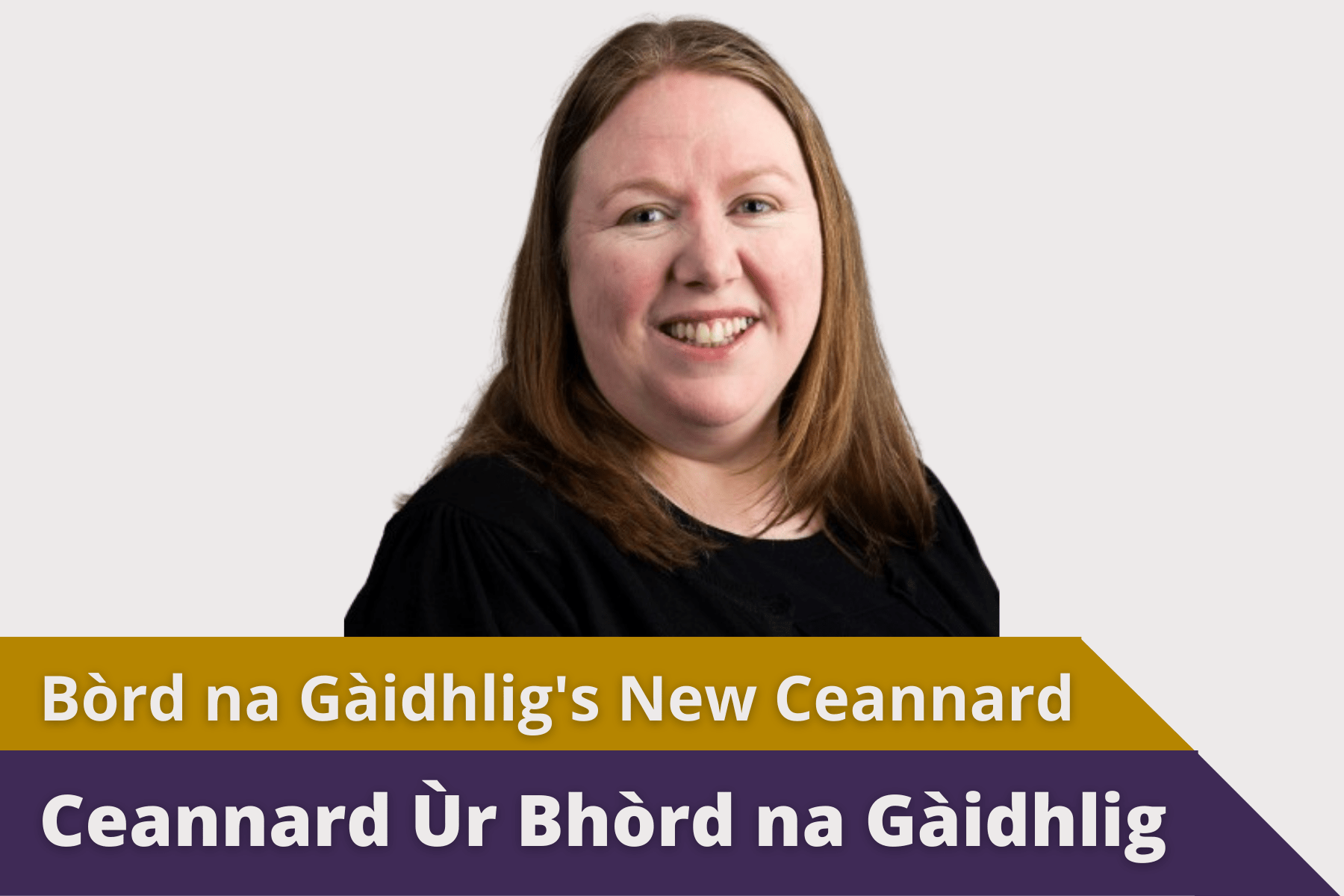The Cabinet Secretary for Education and Skills, Ms Gilruth, today announced the appointment of Robert Dunbar, John MacDonald, Michelle Macleod and Donald MacPhee as Members of the Bòrd na Gàidhlig.
Mairi McInnes, Chair, Bòrd na Gàidhlig said:
“We’re delighted to welcome the new board members at Bòrd na Gàidhlig. The four new members bring such a wealth of knowledge and experience across a wide range of fields and this will be more will be more important and beneficial than ever while Bòrd na Gàidhlig looks forward to a new National Gaelic Language Plan and the introduction of the Scottish Languages Bill.”
Members
Robert Dunbar has been Professor of Celtic at the University of Edinburgh since June 2013. He is one of the foremost experts in the world on law and policy for linguistic minorities. He is an expert of the Council of Europe in relation to minority language issues, and since February 2023, he has been a member of the Committee of Experts of the European Charter for Regional or Minority Languages, a Council of Europe treaty. He has also worked with the Venice Commission of the Council of Europe in relation to language law and language policy. He has frequently advised governments, language policy bodies and NGOs on language legislation for minority language, including the Welsh Academy in relation to the Welsh Language (Wales) Measure 2011. Robert holds a PhD in Celtic from the University of Edinburgh, on the life and secular poetry of John MacLean (1787-1848), the Tiree and Nova Scotia Gaelic poet, as well as an LL.M from the London School of Economics, an LL.B from Osgoode Hall Law School, Toronto, and a BA from the University of Toronto.
John MacDonald is a native Gaelic speaker, originally from South Uist, who lives in Edinburgh. Having obtained a business degree, he worked in the IT industry in his early career and then spent over 30 years of his working life in the Scottish voluntary and community sector before retiring in 2022. His roles ranged from Development Officer to Director and Chief Executive with national charities. This has given him insight into effective community development, sage stewardship of public funds and good governance. He has served on the board of trustees for a number of voluntary organisations over the years and is currently a volunteer adviser for Citizens Advice in Edinburgh as well as running online conversation classes for Gaelic learners.
Michelle Macleod, originally from the Isle of Lewis, is a Professor of Gaelic at the University of Aberdeen. Michelle has taught Gaelic and related subjects in universities in Scotland and Ireland for more than 25 years; she has also taught applied sociolinguistic courses and has supervised PhDs in language planning. She has held various leadership roles for languages in higher education including in 2022 being one of three Future of Languages Research Fellows funded by the Arts and Humanities Research Council where her work considered how research could support the policy ambitions for the UK’s indigenous languages; she also currently sits on the British Academy/University Council for Languages Strategic Committee for Languages in Higher Education. Michelle has conducted research into Gaelic literature, theatre, second language acquisition and community language planning. Her community language planning research was inspired by the three years she spent as Project Officer and then the first Director at Ionad Chaluim Chille ìle and she recently collaborated with Comunn na Gàidhlig and Sabhal Mòr Ostaig on the Bòrd’s project to establish a network for Gaelic language officers. She is currently Chair of Theatre Gu Leòr and the Catherine McCaig Trust.
Donald Kenneth (DK) MacPhee is a fluent Gaelic speaker who was born and brought up in a strong Gaelic speaking community in South Uist where his late father John was a Gaelic teacher for 40 years. DK’s values, knowledge and skills were further developed over nine years in Catholic seminaries, three of those in Valladolid, Spain. In 1983, this time teaching English in Spain as part of his degree at the University of Glasgow, an unexpected diagnosis of cervical dystonia/spasmodic torticollis literally changed the direction of his life. After graduating with MA (Hons) Hispanic Studies in 1985, and then from Napier College (now University), Edinburgh in 1986 with a Postgraduate Diploma in European Marketing and Languages, his working life began at a charity that supported the unemployed into work. Promoting skills and learning for all, especially for the most excluded and disadvantaged, was to become a central theme of his working life. Voluntary work, including the establishment of the first self-help group for people with dystonia in Scotland and then his appointment as the first Dystonia UK officer outside London, also continued throughout those years.
After two decades of development roles across charities and public sector agencies, in 2009 DK became the lead strategic policy and development officer for Gaelic corporate planning and development within Glasgow City Council with responsibility for all aspects of the council’s Gaelic Language Plans. The expansion of Gaelic Medium Education and the implementation of the Gaelic Plan are also commitments in Glasgow City Council’s 2022-2027 Strategic Plan. Some family members also work in, or have children in, Gaelic Medium Education. DK has a special interest in sport, in particular football, and has contributed to Gaelic radio and television programmes views on football, dystonia and other general interest stories for decades. A BBC ALBA documentary about his life with dystonia called Dystonia: Beatha air Fhiaradh / Life at an Angle won a Gaelic Award in 2021. He is also one of the many Gaelic voices of Duolingo and has been a Board member of Comunn na Gàidhlig since 2018 and of FC Sonas since 2022.

